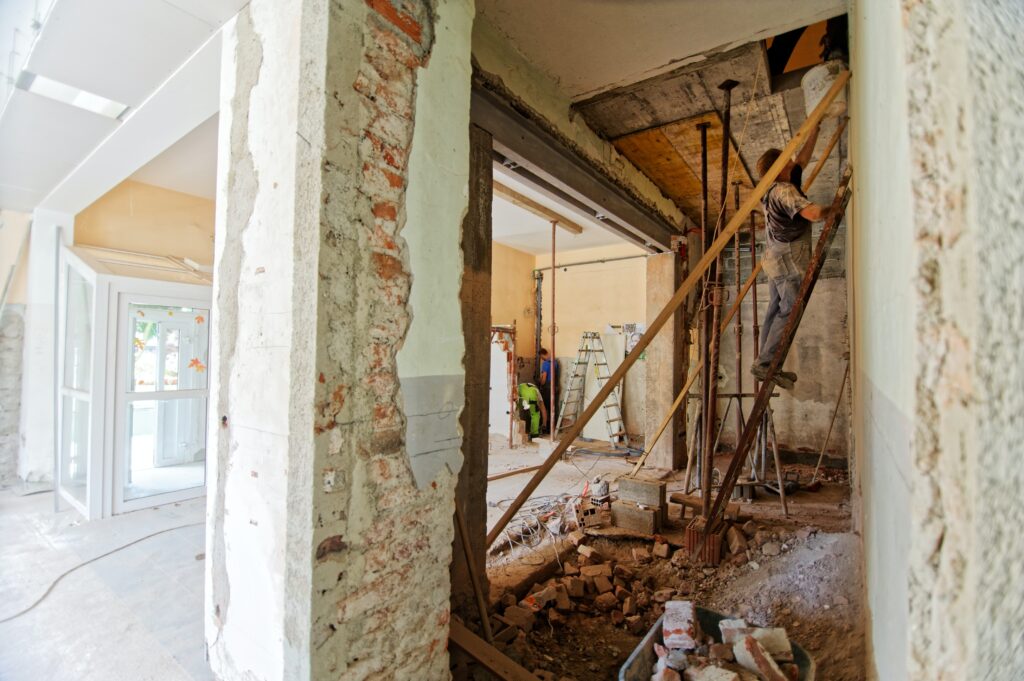Home renovations can be a challenging yet rewarding experience. Each renovation project has its own unique twists and turns that make the entire process complex and overwhelming. However, with the right plan, mindset and guidance, you can successfully complete your home renovation. To help ease the process for you, here are just six things that you should consider before beginning your home renovation.

The importance of setting a budget
It’s no secret that renovations can be expensive, especially bigger projects such as property and construction extensions. This makes it vital to prepare a budget for your project to determine how much you’re willing to spend on the renovation. A well-prepared budget details everything from the materials and labour to the tools and equipment used throughout the renovation process. It helps you stay within your means and ensures you don’t spend too much when something goes wrong. If you’re working with a tight budget, consider DIYing your renovation project. A home DIY saves you money on labour, which usually is quite pricey.
Be realistic about your timeline
Renovations can take anywhere from a few weeks to months to complete depending on the complexity and size of the renovation. So, have realistic time expectations with your project, especially if you want a high-quality renovation. Start by determining how much time you need for the renovation, and factor in upcoming trips, family events and even your job. Then, add two to three weeks to this timeline to give room for mishaps and delays. Accepting that your renovation will take longer than expected prevents frustration. If you’re planning a major renovation, such as completely redoing your bathrooms and kitchen, you may want to take a vacation or find alternatives to use during the renovation.
Think about décor and style preferences
It’s wise to narrow down your home décor and style before beginning any renovation. Think about the theme you’re going for and the style. For instance, do you want a traditional, rustic, modern or Scandinavian style? You can source inspiration from the internet or on renovation magazines. They’ll give you a better insight into what you like or don’t like. Planning your décor and style beforehand ensures you can budget appropriately and purchase the right furniture and equipment. It also guarantees that you’ll be satisfied with the end result.
Invest in the right tools for your renovation
If you’ve decided to do a home renovation project, and are undertaking some of the work yourself, it’s essential to invest in the right tools for the job. While items like hammers, drills and drivers are necessary for a range of tasks, you may also need to look at some larger pieces of specialist equipment such as bandsaws or cutting machines, belt sanders or routers. It’s vital to note that buying tools for renovation can be expensive. But, it’s a long-term investment, ensuring you have tools at your disposal for future DIY renovations, repairs and replacements. However it’s also worth comparing the cost against employing contractors who will have the skills and equipment needed, and could be more cost effective if you don’t already have the right tools.
Consider a warranty
Although warranties aren’t essential when you’re renovating, they can come in handy if you run into problems. They cover your house against flaws in materials, design and build quality, allowing you to request repairs or replacements at no additional cost. Similarly, buy materials and equipment with at least a one year warranty. It gives you peace of mind knowing you can get a replacement if they’re faulty or damaged.
Consider general safety
Many renovation projects contribute to tripping hazards, falls, and other minimal and fatal accidents. This makes it essential to implement safety while renovating to ensure you and your loved ones are out of harm’s way. If you’re outsourcing the renovation, you can guarantee safety by only working with vetted and qualified renovation experts to minimise the likelihood of accidents. Check that they’re insured and have all the right papers.
If you’re DIYing your renovation project, be sure to wear protective gear at all times. This includes gloves, foot and eye protection and full bodysuits. Keep your site tidy by storing all your tools and equipment in a safe place. Also, pick up any screws, nails or fasteners lying around to limit the risks in your home while renovating!

